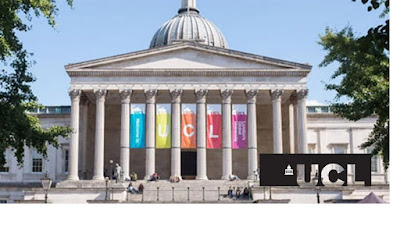University College London Advancing Knowledge and Inspiring Change
Introduction:
University College London, commonly known as UCL, is a prestigious institution of higher education located in the heart of London, United Kingdom. Founded in 1826, UCL has a long and distinguished history of academic excellence, research innovation, and a commitment to societal progress. This article provides an in-depth look at UCL, its history, academic prominence, cultural impact, and contributions to the global community.
Historical Foundations:
UCL was established with a visionary ethos - to provide an inclusive, secular, and progressive education. It was the first university in England to admit students regardless of their religion, gender, or social background. This commitment to inclusivity and innovation has been a defining feature of UCL since its inception.
Academic Excellence:
UCL consistently ranks among the top universities worldwide, renowned for its rigorous academic programs and world-class faculty. The institution offers a broad spectrum of undergraduate, postgraduate, and research programs across various disciplines, including science, arts, humanities, social sciences, engineering, and medicine. UCL's emphasis on interdisciplinary collaboration encourages students and researchers to address complex global challenges.
Cutting-Edge Research and Innovation:
Research at UCL is characterized by its pioneering nature and real-world impact. The university hosts numerous research centers and institutes, where scholars push the boundaries of knowledge in fields such as artificial intelligence, neuroscience, public health, and sustainability. UCL researchers have contributed to groundbreaking discoveries that have transformed industries and improved lives.
Notable Alumni:
UCL has produced a remarkable array of alumni who have left an indelible mark on the world. Among its alumni are Alexander Graham Bell (inventor of the telephone), Mahatma Gandhi (leader of the Indian independence movement), and Francis Crick (co-discoverer of the DNA structure). These individuals exemplify UCL's tradition of nurturing innovative thinkers and global leaders.
Cultural and Campus Life:
UCL's central location in London offers students access to a vibrant and diverse cultural scene. The university's historic campus, including the iconic University College London Main Building, provides a picturesque setting for learning and collaboration. Students can engage in a wide array of cultural and extracurricular activities, from art exhibitions and theater performances to sports clubs and academic societies.
Public Engagement and Social Impact:
UCL is deeply committed to public engagement and societal impact. Its researchers work closely with communities, policymakers, and organizations to address pressing global challenges, including healthcare disparities, climate change, and urban development. The university's dedication to driving positive change extends beyond academia and into the broader world.
Conclusion:
University College London represents an enduring commitment to education, research, and innovation that transcends boundaries. With a legacy of inclusivity, a dedication to advancing knowledge, and a mission to inspire positive change, UCL continues to shape the future and make a meaningful impact on society. As a global leader in education and research, UCL remains a beacon of knowledge and progress in the 21st century.
